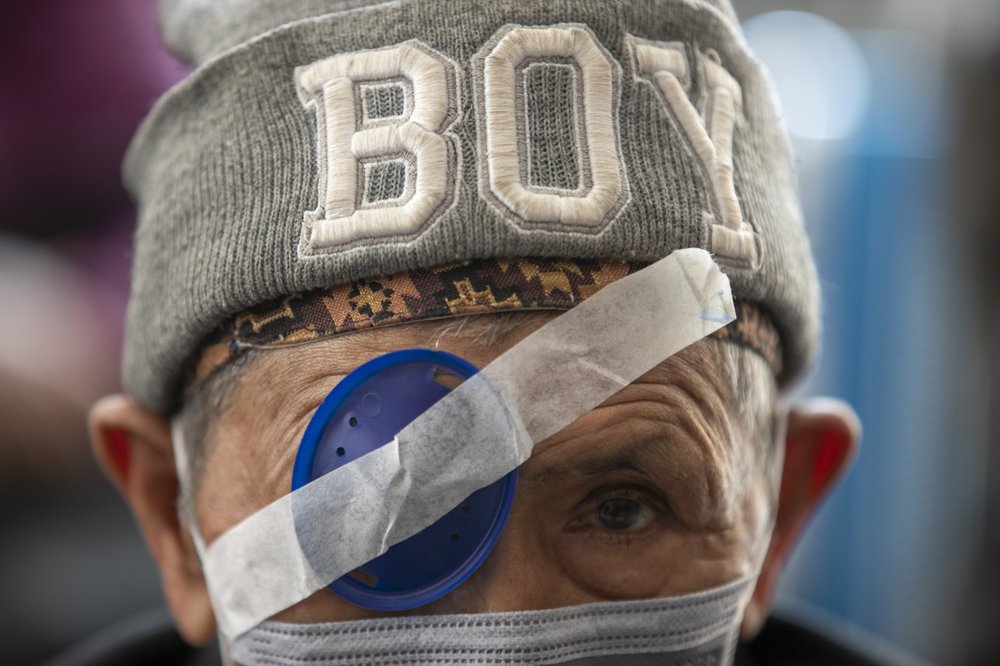‘God of Sight’ offers inexpensive cataract surgery

Dr. Sanduk Ruit is Nepal’s best eye doctor. Known as the country’s “God of Sight,” Ruit is renowned for creating inexpensive cataract surgery. He offers his surgery to the poor community in Nepal. A makeshift hospital sits next to the Mayadevi temple where Buddha was born more than 2,600 years ago. Hundreds of people line up each day to help their fading eyesight. “The whole objective, aim and my passion and love is to see there remain no people with unnecessary blindness in this part of the world,” Ruit told the Associated Press.
The average cost of the surgery is $100 and is free for those who cannot afford it. Dr. Ruit has performed the surgery over 130,000 times and hopes to expand his efforts internationally. With the limited hospitals in Nepal, eye care is difficult to come by without Dr. Ruit. Cataracts cause blurry vision, blocks light and are a high-risk factor in the high altitudes of Nepal. “The doctor is just not god-sent but he is a god for me who has given me a new life,” Satindra Nath Tripathi, a farmer who benefited from the surgery, told the Associated Press. “My world was completely dark, but now I have new life and new sight.”
Migrants find shelter in Canary Island hotels

When the pandemic first began, hotel director Calvin Lucock and his wife Unn Tove Saetran worried their livelihood and those they employed would be ruined. But things took a turn for the better when the Spanish government partnered with hotels in the Canary Islands to house thousands of African migrants coming into the country with no place to live. The hotels stayed in business and many of the employees kept their jobs. The only problem was the solution would come to an end after large-scale migrants camps were built. But after the camps were built, Lucock and Saetran found migrants still lining up to receive shelter in the hotel. So they decided to reopen their doors, this time at their own expense.
The couple currently shelters 58 migrant men, including eight minors. They left the camps for various reasons. The migrant camps have been prone to overpopulation, lack of food, insufficient medical, or fear they would be sent back. One migrant living in the hotel is trying to find work to pay back debts he acquired after receiving loans for his three-year-old son’s heart surgery. Though the housing isn’t permanent, the couple is glad they can help for the time being. “If we can play a small part in making them feel safe and secure while they are here, then I feel like we’ve achieved something,” Lucock told the Associated Press.
Keukenhof garden begins opening its grounds to visitors

The Netherlands is known for its incredible spring blooms. Tulips fill gardens as the sun begins to shine again after long winter months. And after a year of strict COVID-19 restrictions, gardens are cautiously opening back up to welcome visitors. The world-famous Keukenhof garden, home to 7 million different flowers on its grounds, welcomed a maximum of 5,000 visitors a day. The government-approved plan requires visitors to show proof of negative COVID-19 tests in order to enter. The Keukenhof garden is the first step in a much larger plan the Dutch government has to reopen.
Last year the Keukenhof garden was unable to hold visitors, so the opening this year, despite its delays, has been welcomed warmly by the patrons. The garden’s 40 gardeners along with the limited visitors are able to attend the limited opening for only six days during a two-week opening this month. Though the garden does not have the same busy and crowded feel it has had in the past years with international tourists, those who got to attended happily strolled through the flowers. “This is a gift,” blogger Berry de Nijs told the Associated Press. “It feels great today. It is beautiful weather anyway … but to walk through the tulips is fantastic!”




